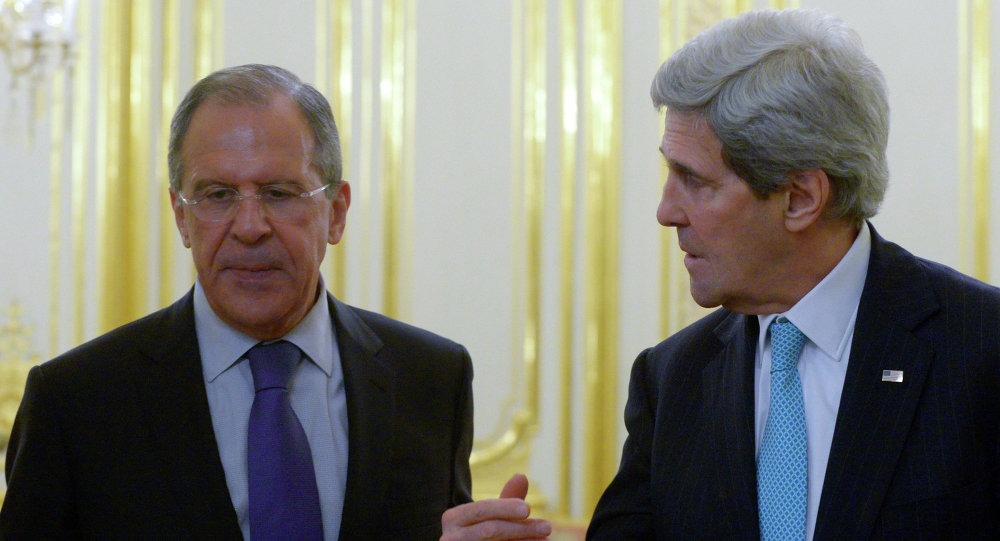
 The US should be careful to avoid giving allies or friends, like Kiev, the sense that they have a blank check in confronting Moscow, instead the policy should be changed for somewhat "détente plus," in which Russia is not treated "as an enemy, but as a combination of adversary and partner," according to the US magazine The National Interest.
The US should be careful to avoid giving allies or friends, like Kiev, the sense that they have a blank check in confronting Moscow, instead the policy should be changed for somewhat "détente plus," in which Russia is not treated "as an enemy, but as a combination of adversary and partner," according to the US magazine The National Interest.American bimonthly international affairs magazine The National Interest has come up with a blog post suggesting that it is high time for the US to change its attitude towards Moscow.
The post is based on the article published earlier in the magazine which analyzed the prospects of a Russian-American war given the current strained relations between the two.
It comes to the conclusion that the policy towards Russia should be changed for a sober one of "détente plus," in which each Russia is not treated "as an enemy, but as a combination of adversary and partner," as was put by Council on Foreign Relations president emeritus Leslie H. Gelb in an article which is yet to be released.
Earlier in April the magazine cautioned the United States to "be careful to avoid giving allies or friends — like Kiev — the sense that they have a blank check in confronting Moscow.”
"What those who count on Russian isolation today do not properly take into account is that a powerful and assertive alliance prepared to pursue its interests and promote its values inevitably stimulates antibodies,” it warned.
"Military force and economic warfare such as sanctions are indispensable instruments of foreign policy. When employed without a sound strategic vision and artful diplomacy, however, instruments of coercion can develop their own momentum and become ends in themselves.”
"Having managed a confrontation over the Soviet Union’s attempt to install nuclear-tipped missiles in Cuba that he believed had a one-in-three chance of ending in nuclear war, President John F. Kennedy spent many hours reflecting on the lessons from that experience,” the magazine said.
"The most important of these he offered to his successors in these words: "Above all, while defending our vital interests, nuclear powers must avert those confrontations which bring an adversary to a choice of either a humiliating retreat or a nuclear war.”
It is a lesson, the magazine says, statesmen should apply to meet the challenges posed by Russia.



_jpg/250px-ElbeDay1945_(NARA_ww2-121).jpg)





